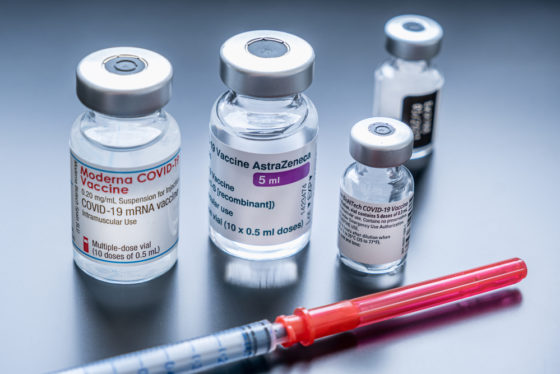Dutch soften stance on temporarily lifting Covid vaccine patents


Health minister Hugo de Jonge has softened his position on lifting the patents on coronavirus vaccines to boost their use in poorer countries, after previously taking a tougher line.
‘The cabinet continues to press the European Commission to constructively engage within the World Trade Organisation regarding proposals for the temporary lifting of patents on coronavirus vaccines,’ de Jonge said in answer to MPs questions. ‘The cabinet is now of the opinion that … there must be a proactive and constructive negotiation on concrete texts for the Trips waiver proposal’
The proposal in question is an agreement on Trade-Related Intellectual Property Rights which would lift patents on the intellectual property needed to produce, manufacture, and distribute Covid-19 vaccines. The Trips waiver proposal submitted to the WTO has received the support of over 100 countries so far.
Health advocates around the globe argue that intellectual property rights are serving as an artificial impediment to the production and sharing of life-saving vaccines, medical technologies, and knowledge.
Marianne Meijer, from Dutch healthcare rights campaign group Wemos, told DutchNews.nl that the minister’s statement is a departure from his previous position on patents. ‘In February, the Netherlands was strictly following the European Commission stance that intellectual property isn’t a hindrance, but is rather an asset,’ she said.
‘Vaccines are essential in curbing the pandemic and increasing their production is crucial for better access to vaccines worldwide,’ she said. ‘In this light, the Dutch government’s call to the EU Commission to engage constructively in the WTO regarding proposals for temporary suspension of patents on COVID-19 vaccines, is a step in the right direction.’
Sharing vaccines
Until now, the Dutch government has focussed on Covax, an initiative which facilitates the sharing of vaccines, in particular with lower income countries, and on pharmaceutical companies’ willingness to collaborate without a mandate to temporarily relinquish their intellectual property rights.
Currently, just 1.1% of people in low-income countries have received a single dose of any coronavirus vaccine. In the Netherlands, by contrast, there is currently a discussion taking place about the need for a third booster jab for the elderly population.
To combat this inequality, the World Health Organization has called for a moratorium on vaccine boosters until at least 10% of the population of all countries have been vaccinated.
Pressure
MPs have been pressuring the Dutch government to change its position. In June they voted narrowly in favour of a motion drawn up by Labour party MP Kati Piri, which called on the Dutch government to work towards halting EU resistance to the temporary lifting of Covid-19 vaccine patents.
The Netherlands has sent unused vaccines to its former colony of Suriname and has allocated 500,000 doses under the Covax scheme. It will also donate three million doses to Indonesia and the rest of the AstraZeneca stockpile will be donated to several countries including Tanzania and Namibia.
De Jonge’s comments come as Pfizer raised its predicted annual vaccine revenue by nearly a third to $33.5bn, and it was revealed that both Pfizer and Moderna have raised the prices for their vaccines.
Thank you for donating to DutchNews.nl.
We could not provide the Dutch News service, and keep it free of charge, without the generous support of our readers. Your donations allow us to report on issues you tell us matter, and provide you with a summary of the most important Dutch news each day.
Make a donation